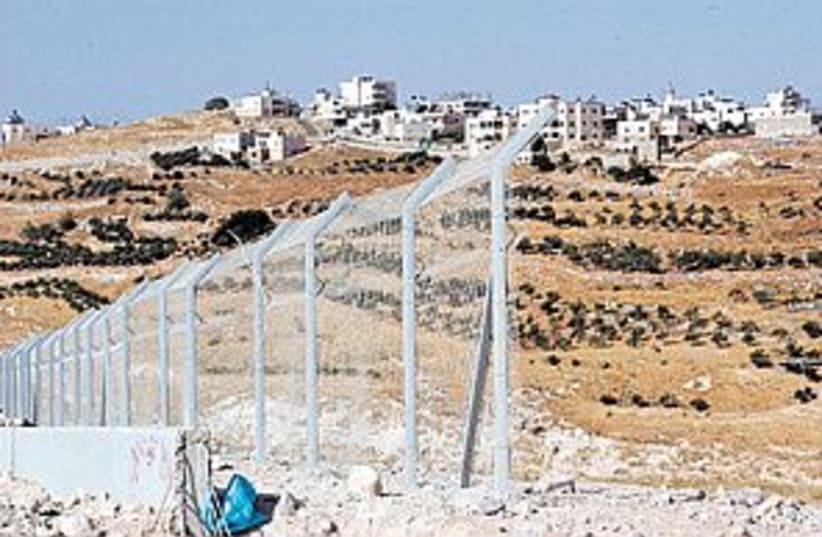Supreme Court President Aharon Barak said the panel of three justices would hand down their decision at a later date.
The petitioners maintained that Sheikh Saed is an integral part of Jabel Mukabar. They argued that their center of life is in Jabel Mukabar, that they have family ties to residents there and use all the services that are located in Jabel Mukabar. They also maintain that when Israel drew the borders of expanded Jerusalem in 1967, they arbitrarily cut Sheikh Saed off from Jabel Mukabar.
The army has planned the separation wall in Jerusalem to cut off Jabel Mukabar from Sheikh Saed, leaving the main village on the Israeli side and the Sheikh Saed quarter on the Palestinian side. The residents of Sheikh Saed have fought that decision in a special appeals court in Tel Aviv District Court. The court is due to give its ruling on the appeal within the next few weeks.
In the meantime, the army issued a land seizure order to build a road to connect Sheikh Saed to Suahra el-Sharkiye in the West Bank. Residents charge that the construction of the road is part of the government's plan to cut the quarter off from Jabal Mukabar and Jerusalem.
The state's representative, attorney Aner Hellman, argued that the road had to be built no matter what the court of appeals decided, since some 500 residents of Sheikh Saed did not have Israeli identity cards and would not be able to enter Jerusalem under any circumstances.
When Barak asked Hellman why the state could not wait until the appeals court made its decision before he ruled on the petition against the road, Hellman said that even if Sheikh Saed were to end up on the Israeli side of the wall, the Palestinians living in the quarter would still have to work in, and use the services of, the West Bank. Furthermore, it would take a long time to build the road because of the steep grade that had to be dealt with and that winter was approaching. Hellman also pointed out that no matter which side won the case in Tel Aviv, the other side would appeal the decision to the Supreme Court, so that the final decision would still take many months.
The petitioners, who also opposed the construction of the road to Suahra el-Sharkia because of the steepness of the grade, suggested two alternative access roads, both of which would take them into Jerusalem and then out again to the West Bank. Hellman told the court the state would under no circumstances agree to allow Palestinians to enter Jerusalem.
| More about: | Aharon Barak, Jabel Mukaber, United States, Jerusalem |
